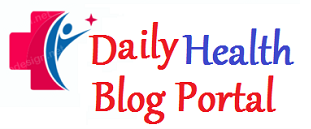Suffering from an addiction is never easy, and it can be even harder to seek treatment. Substance abuse treatments can sound intimidating at first. But the more you know about your treatment options, the sooner you can choose a program that will help you build a better future. Not every addiction is the same, and the different treatments are designed to help each individual reach their sobriety goals. When you first contact your treatment center, you’ll have an initial meeting where you’ll discuss the various substance abuse treatments available and determine which is best suited for your needs.
Types of Substance Abuse Treatments
Because everyone is different, addiction treatment has developed to include a variety of substance abuse treatments. Each treatment option has its advantages and disadvantages depending on your specific treatment needs. If you aren’t sure which treatment plan is right for you, the team of healthcare professionals at your treatment center can help you decide on one.
Intensive Outpatient
Intensive outpatient treatment options are perfect for working adults or those who have family obligations. In these programs, individuals attend 3-hour sessions three to five times a week. These sessions are offered both during the day and the evening, and you can split your sessions between the different times as needed.
The intensive outpatient program allows you to maintain your regular schedule. This means you can go to work, attend classes, and take care of your family while still building a better future for yourself. By going back to your regular living environment after each session, you can get a better understanding of what challenges you may face in your daily routine while trying to stay sober. By doing so, you can focus your treatment on facing those challenges directly.
Partial Hospitalization
Being able to continue your regular life and find the challenges of staying sober during treatment is a great opportunity for improving your life. But not everyone can get the same benefits by only attending a few sessions throughout the week. Some addictions are so strong and difficult to deal with that additional time and monitoring are needed to help overcome them.
Partial hospitalization programs are the perfect answer for those situations. Individuals still attend 3-hour sessions, but they attend two sessions per day every day of the week. In between sessions, individuals stay at the treatment center during the day so they can receive additional health monitoring or counseling. After the day is over, they still go back to their sober living environments so they can learn what challenges they need to focus on in their treatment.
Chronic Relapse
Although both intensive outpatient and partial hospitalization programs drastically reduce the chances of relapse, it’s still possible for many to fall back into addiction. One or two relapses are, unfortunately, a regular part of obtaining and maintaining sobriety after your first time seeking treatment. But continuous cases of relapse often point to a larger issue at hand.
In a chronic relapse treatment plan, those who struggle to stay sober can work together to reach a better future. These sessions are held separately from other programs, allowing for the sole focus to be on the challenges of staying away from addiction. And once the program is over, individuals gain access to a continuing care program that lasts from six months to a year. This program offers additional support after the sessions are over to help graduates maintain their sobriety and avoid future relapses.
How Substance Abuse Treatments Work
Addiction is difficult to combat, and past treatment options haven’t always been effective. Thankfully, modern understandings in the medical fields (both physical and mental) have helped treatment centers develop robust programs that have higher success rates than ever before. By focusing on education and the underlying causes of addiction, substance abuse treatments help more people find a healthy, sober lifestyle.
Education Backed by Science
Understanding your addiction is a key part of overcoming it. How and why addiction forms in certain individuals hasn’t always been understood. But advancements in scientific research have come closer to figuring out all the intricate details of how addiction works. By learning about these discoveries, individuals can better understand their own situations and the actions they need to take to improve their lives.
Co-Occurrence
One of the many underlying causes of addiction is usually a separate mental illness that hasn’t been diagnosed. Because substances alter your brain chemistry in a similar way that prescription drugs would, many individuals turn to alcohol and drugs as a form of self medication. Typically, they do so completely unaware of the fact.
Suffering from mental health issues such as bipolar disorder, anxiety, trauma, and others not only leads to addiction but can also make it harder to overcome addiction. Individuals who learn about their mental health and how it contributes to their addiction can also learn to develop healthy coping mechanisms. Treatment for addiction helps create an entire healthy life, not just in regard to addiction itself.
Where to Find Substance Abuse Treatments
Admitting that you’re ready to seek treatment for your addiction is an important step. But it’s also important that you find the right treatment center with the program that will work best for you. At The Bridges of San Diego, we offer a variety of substance abuse treatments that will help you take back control of your life. Whether you’re suffering from an addiction to alcohol or drugs, we’re here to help. Give us a call at 619-639-1458 to schedule your initial assessment and learn about our treatment options and financial aid.
